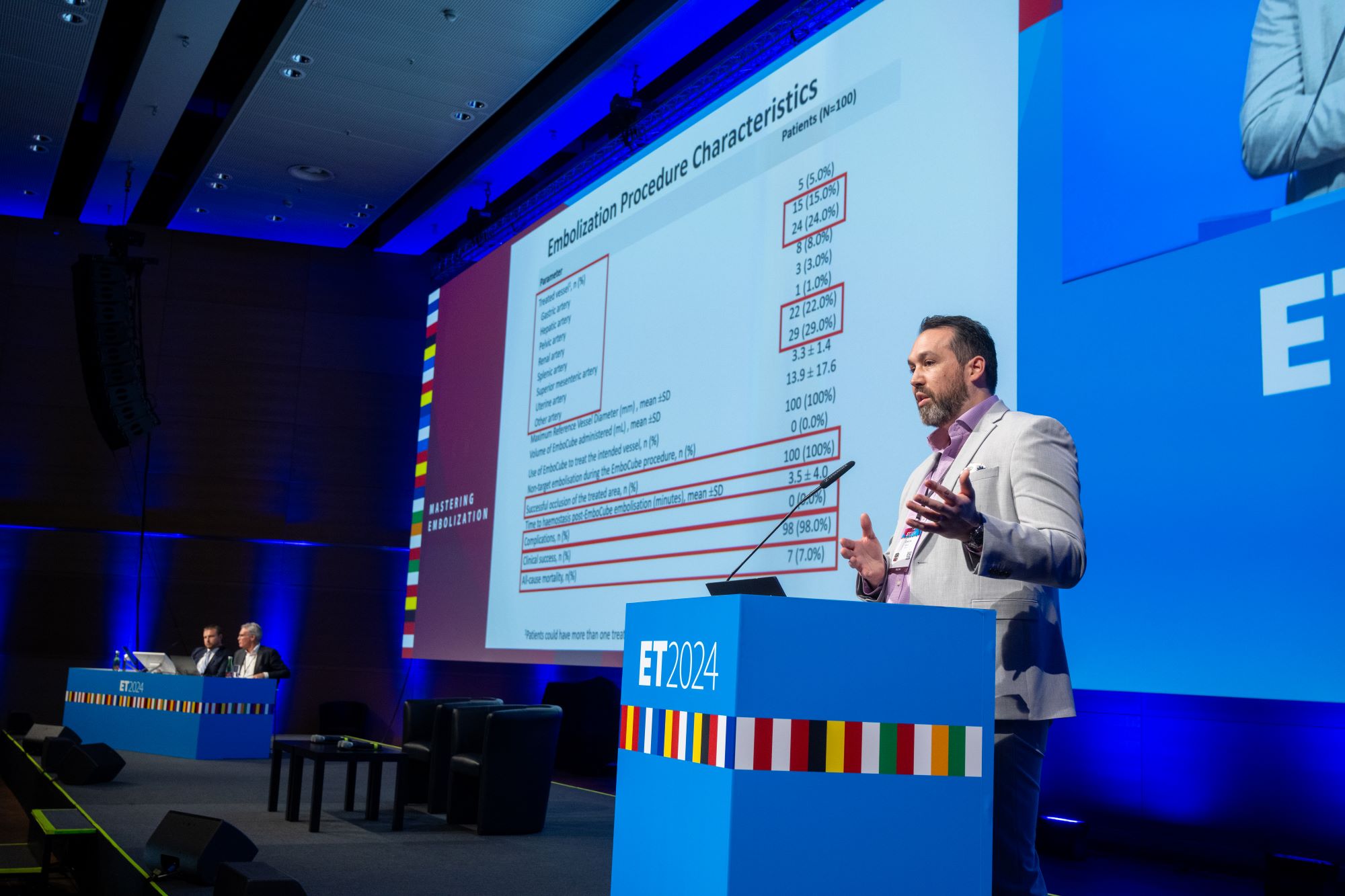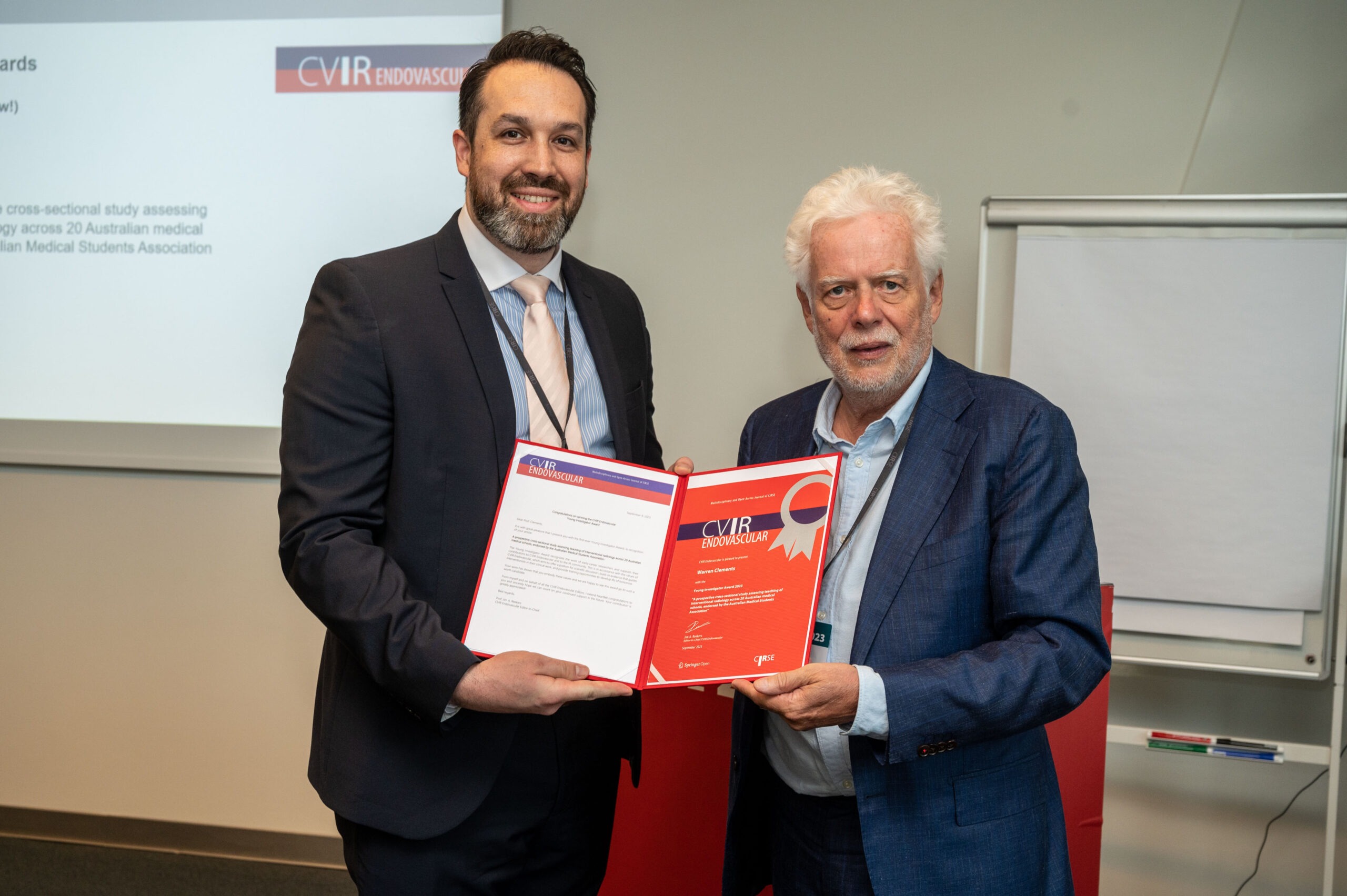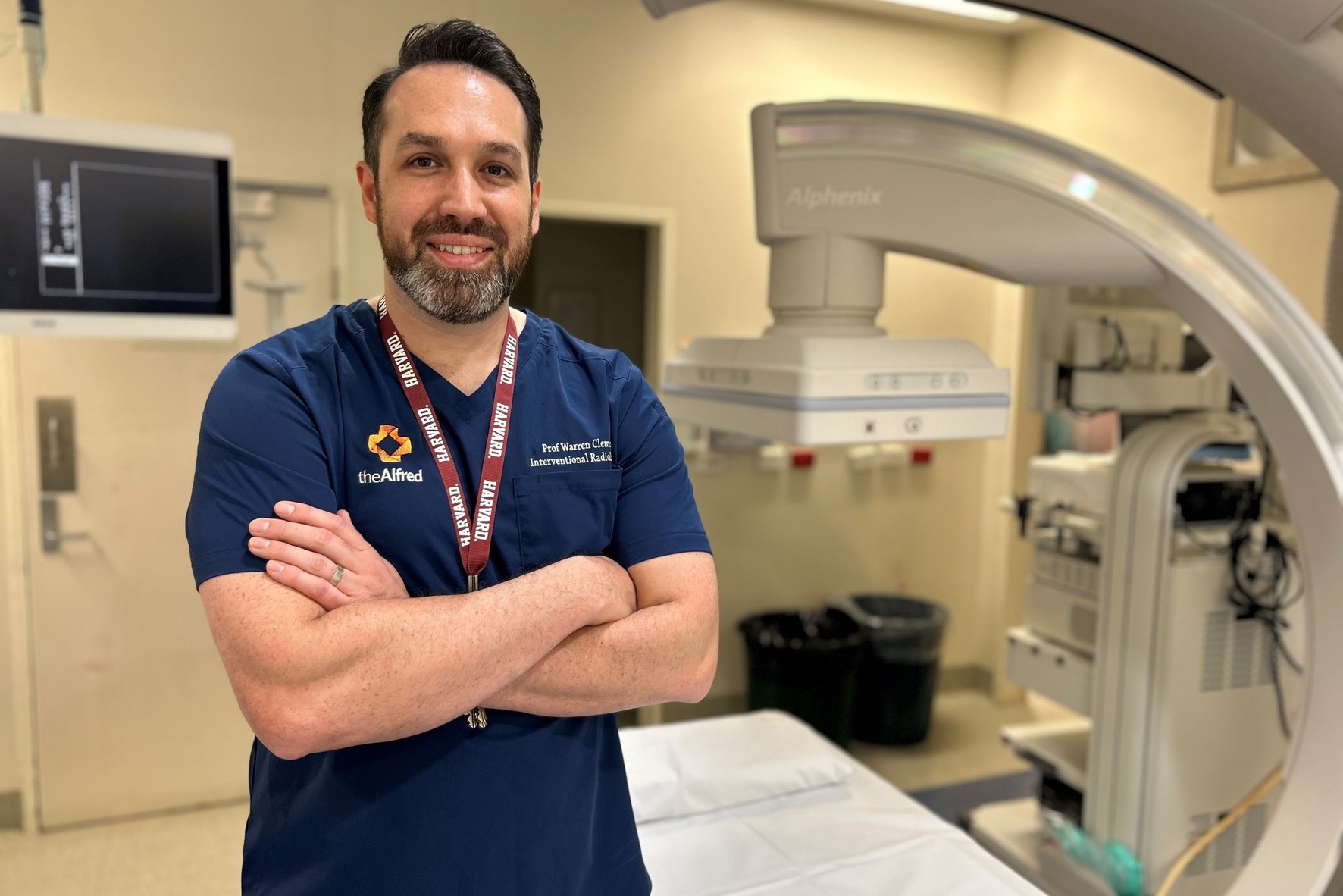CIRSE: What kind of support do young researchers need when first starting out?
Clements: At an early stage, most research tasks can seem complex and insurmountable. However, the reality is that navigating things like study design, ethics committees, data collection, statistical analysis, and write-up, are actually not difficult at all. I believe that the most important quality of a researcher is personal motivation, and this can be best supported by good mentorship. CIRSE provides many valuable mentorship opportunities including the European Trainee Forum, internship programme, and the be inspIRed student programme. I would suggest that junior researchers find someone who has the time, interest, and motivation to help them. Use the resources of CIRSE (or your local society) and in turn, you can also pay it forward when you have established your career. Finally, make use of modern communication platforms such as X (formerly Twitter) or LinkedIn to showcase your work, these provide rapid dissemination of research to an active IR audience and provide a means to generate a broad research network.
CIRSE: Why did you choose the topic of prophylactic splenic artery embolization (pSAE) for your waiver paper?
Clements: This topic is of clinical and research interest to me for several reasons. Major trauma disproportionally affects younger patients who have many years ahead to live with the burden of their life-changing injuries. Without the option of splenic artery embolization, patients are faced with the prospect of a laparotomy and splenectomy. This means a lifelong risk of life-threatening infection known as overwhelming post-splenectomy infection (OPSI), requiring the patient to carry antibiotics with them at all times. There will also be a very visible abdominal scar for the rest of their life which has the potential for an adverse psychological impact. With prophylactic SAE, we significantly improve the likelihood of leaving their spleen in place whilst keeping splenic function, obviating the risk of OPSI, and with only a pinhole wound. The recovery is shorter than after major surgery, and the cost is far less. There are benefits at many levels for the individual, the hospital, and for wider society.
CIRSE: Do you have any words of advice for anyone who is considering applying for the award this year?
Clements: I would very much encourage all younger researchers who meet the criteria to apply for this award. My advice is to never think that your work isn’t important enough, or that you are invisible unless you are working in a major European centre. Don’t doubt the quality or magnitude of the impact you have had with your research, as it may just be yet to be fully realised. Take some agency and put yourself forward, you will then be taking steps in the right direction for your career.
CVIR Endovascular warmly invites young researchers to put themselves forward by applying for the 2024 Young Investigator Award. The winner will be recognized at the CVIR and CVIR Endovascular awards ceremony at the CIRSE Annual Congress and will receive a waiver for a review or original article on any topic within the journal’s scope to be published in 2025.
Don’t wait! The deadline for submissions is July 31, 2024. Click on the links below to learn more about the eligibility criteria and application process, or to read Prof. Clement’s paper, “A systematic review assessing incorporation of prophylactic Splenic Artery Embolisation (pSAE) into trauma guidelines for the management of high-grade splenic injury.”



